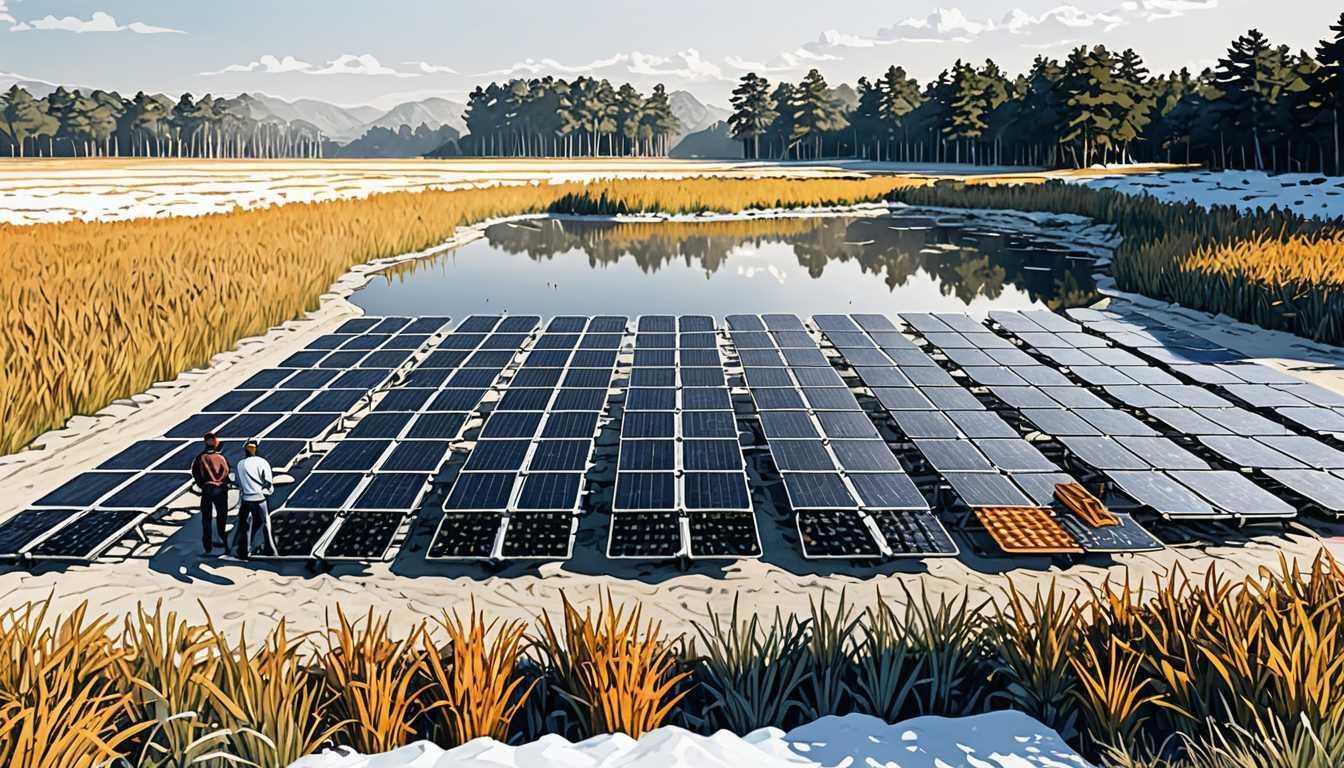Reforestation: Nature’s Cost-Effective Climate Hero!
August 2024
Berkeley Rausser
Introduction
Hey there, eco-warriors! A groundbreaking study from UC Berkeley and Conservation International reveals that reforestation is way cheaper and more effective than we thought! Imagine planting trees not just for shade, but to tackle climate change—who knew trees could be superheroes? This research shows that letting nature do its thing can be even more efficient than traditional methods. Dive into this article from Berkeley Rausser to explore how we can save the planet, one tree at a time!
READ FULL ARTICLEWhy It Matters
Discover how this topic shapes your world and future
Exploring the Green Frontier of Reforestation
Reforestation is not just about planting trees, it’s a vital strategy in the fight against climate change that has global implications. The recent study reveals that reforestation projects can remove carbon from the atmosphere much more effectively than previously believed. This is crucial for combating climate change, as trees absorb carbon dioxide, a major greenhouse gas. By understanding how different reforestation techniques can be combined, we can enhance our efforts to restore ecosystems and improve biodiversity. This topic is relevant to you because it highlights how your actions, like supporting local tree-planting initiatives or educating others about climate change, can contribute to a healthier planet. It’s an empowering reminder that every effort counts in the larger quest for sustainability.
Speak like a Scholar
Reforestation
The process of planting trees in an area where there was once a forest but has been cut down or degraded.
Sequester
To capture and store carbon dioxide from the atmosphere, reducing the amount of this greenhouse gas in the air.
Carbon Removal
Techniques used to extract carbon dioxide from the atmosphere, such as planting trees or using technology.
Biodiversity
The variety of plant and animal life in a particular habitat or ecosystem, a key indicator of ecological health.
Ecosystem
A community of living organisms (like plants, animals, and microorganisms) and their physical environment interacting as a system.
Natural Regeneration
The process by which an area of land returns to a forested state naturally, without the need for human planting efforts.
Independent Research Ideas
The Economics of Reforestation
Investigate how the cost of reforestation varies across different regions and the economic benefits of investing in tree planting. This topic connects economics with environmental science, allowing you to explore financial incentives for sustainability.
Comparative Study of Reforestation Techniques
Analyze the effectiveness of different reforestation methods, such as single-species planting versus natural regeneration. This could lead to insights on which methods are most beneficial for various ecosystems.
Impact of Biodiversity on Carbon Sequestration
Explore how the diversity of tree species in reforestation efforts affects their ability to sequester carbon. Understanding this could reveal best practices for future projects.
Public Perception of Reforestation Initiatives
Conduct surveys or interviews to gauge how people view reforestation efforts in your community. This could shed light on the importance of public awareness and engagement in climate action.
Long-term Effects of Reforestation on Local Wildlife
Research how reforestation projects impact local animal populations and habitats over time. This is a great way to combine biology with ecology and understand the broader implications of restoring forests.
Related Articles

Fires, Ice, and Climate Change Secrets
August 2024
University of Cambridge

Plants: Quick Carbon Heroes or Temporary Guests?
June 2024
Imperial College London

Floating Solar: The Hidden Emissions Dilemma
January 2025
Cornell News Highlights

Plastic Pollution: A Treaty's Path to Change
November 2024
UC Berkeley NewsCenter

Stream Monitoring: California's Water Crisis Uncovered
June 2024
Berkeley Rausser